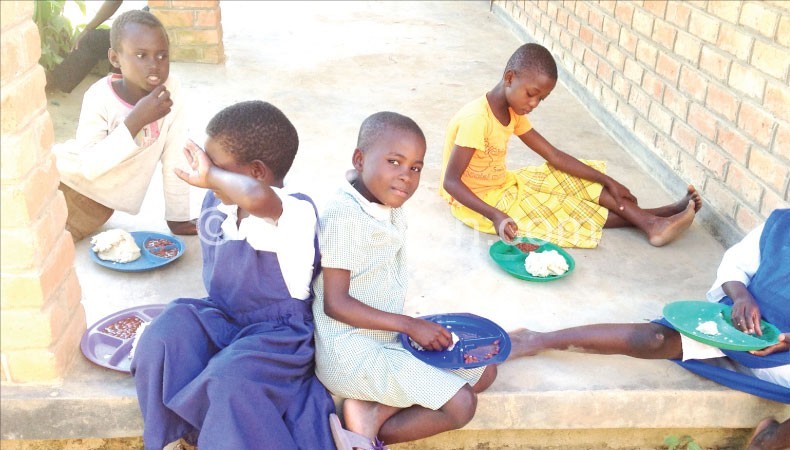Slippery road to education for the deaf

Financial woes crippling services at Bandawe School for the Deaf exemplifies how lack of sufficient funding, as cited by the 2007 National Policy on Special Needs Education (SNE), is a hitch in attainment of education for all in Nkhata Bay.
Ellen Mwale, 16, travels 90 kilometres from Mzuzu to Bandawe School for the Deaf to access education. Ellen, who comes from Zolozolo Township in Mzuzu, says things at the school are not rosy.
“We are always eating nsima with beans. The diet does not change at all,” she says.
At the moment, the school uses a borehole as a water source because taps were closed to save on water bills. Although the school is facing all these challenges, Ellen calls it home away from home.
She enrolled at the school at nine, and is now among 84 students who learn knitting, tailoring, carpentry and lip reading skills, among others.
Ellen, who is in Standard Five, says she is happier at the school because there is no segregation.
“I have friends whom I communicate with, we perform traditional dances together and we are all learning to speak a few words,” she says.
The Federation for Disability Organisation in Malawi (Fedoma) website indicates that the provision of SNE in Malawi started in the early 1950s by the Scottish and South African Evangelical Missionaries at Chilanga in Kasungu and Lulwe in Nsanje. It began with the education of learners with visual impairments.
Currently, special needs schools and resource classroom centres provide services to learners with varying disabilities.
The 2008 Malawi Housing and Population Census indicates that the most common form of disability among children is hearing loss, which is at 23 percent.
However research has shown that educational opportunities of learners with special needs are increased when they receive classroom support, their teachers have the relevant skills and funding is sufficient in order to provide appropriate teaching and learning resources.
The 2007 National Policy on SNE outlines major constraints to effective implementation of SNE in the country, such as lack of sufficient funding.
Bandawe School for the Deaf is one such school. The school, which started in 2005 with 10 learners, enrolls deaf children from Mchinji, Lilongwe, Salima, Nkhata Bay and Rumphi.
Currently the school has 84 learners who, according to its head of station the Reverend Moffat Chirwa, survive on God’s grace.
Chirwa whose church supports the school with six bags of maize and cassava flour every year, appealed to the Synod of Livingstonia Development Department to donate 10 toilets and to share their ‘leftovers’ with the children.
“Please share whatever you have with these children. These learners are not society rejects,” he pleaded.
He said government support is little for the school to survive on.
But how can Ellen call the school her home when it has acute food shortages and inadequate financial support to provide for all her needs?
The school’s head teacher Andrew Chaziya Chulu says they treat the children with love and uttermost care that some children refuse to go back to their homes on vacations.
“Some of these children now detest their homes because of the communication gap with their parents, while some parents refuse to pick up their kids when school closes,” he says.
Chulu says K200 000 that the school gets from Nkhata Bay District Council is not enough to cater for staff salaries, bills and food.
He said the school is also finding it hard to meet the nutritional needs of learners on antiretroviral therapy (ART) because they only have nsima and beans as their main meals and porridge for breakfast.
Chulu says the school had accumulated K140 000 in water bills alone, of which it had settled K82 000. This forced them to temporarily close their taps and switch to boreholes to save on water bills.
“We pay our seven support staff less than K8 000. We also look into the teachers’ pension scheme. The money is not sufficient for food and the day-to-day running of the school,” he said.
It is not surprising that things are this gloomy at Bandawe School for the Deaf.
In the Malawi Growth and Development Strategy II (MGDSII), children with disabilities are only mentioned once under education; “Promoting a conducive environment for girls and students with special education needs.”
“This clearly shows lack of priority given by government to children with disabilities. It is not surprising therefore that so far there has been little funding for disability issues,” reads the Malawi Children with Disabilities Situational Report for 2013.





